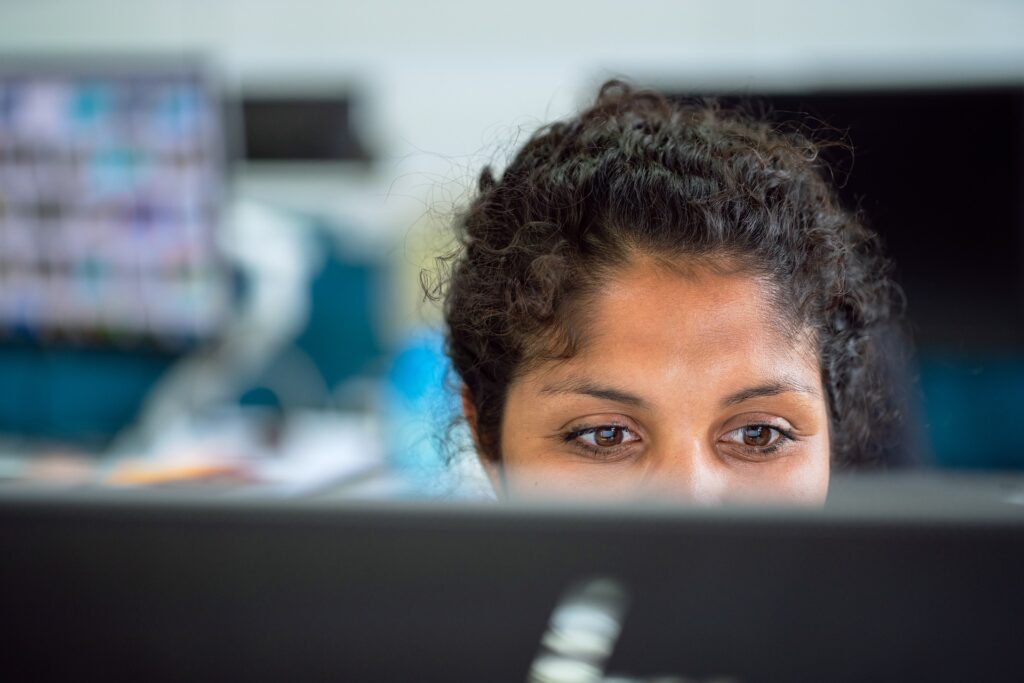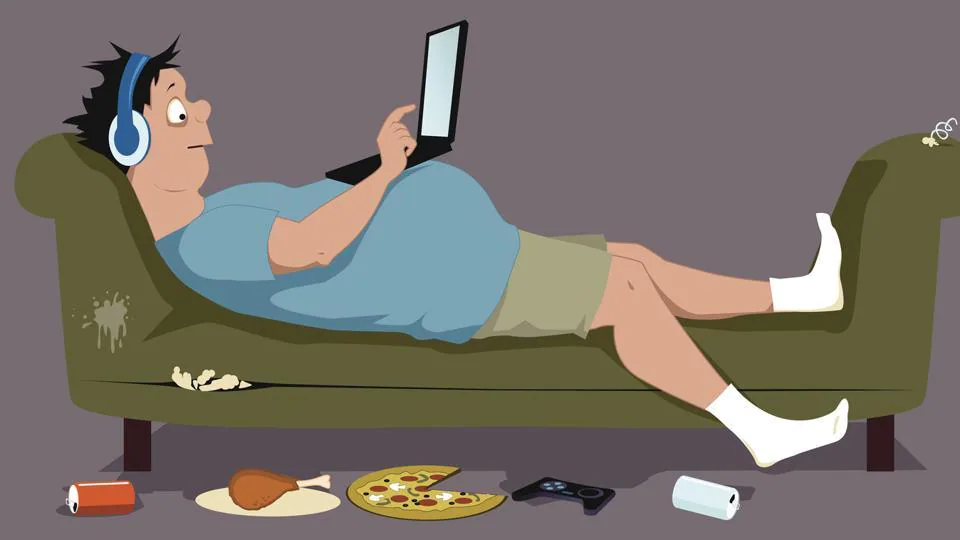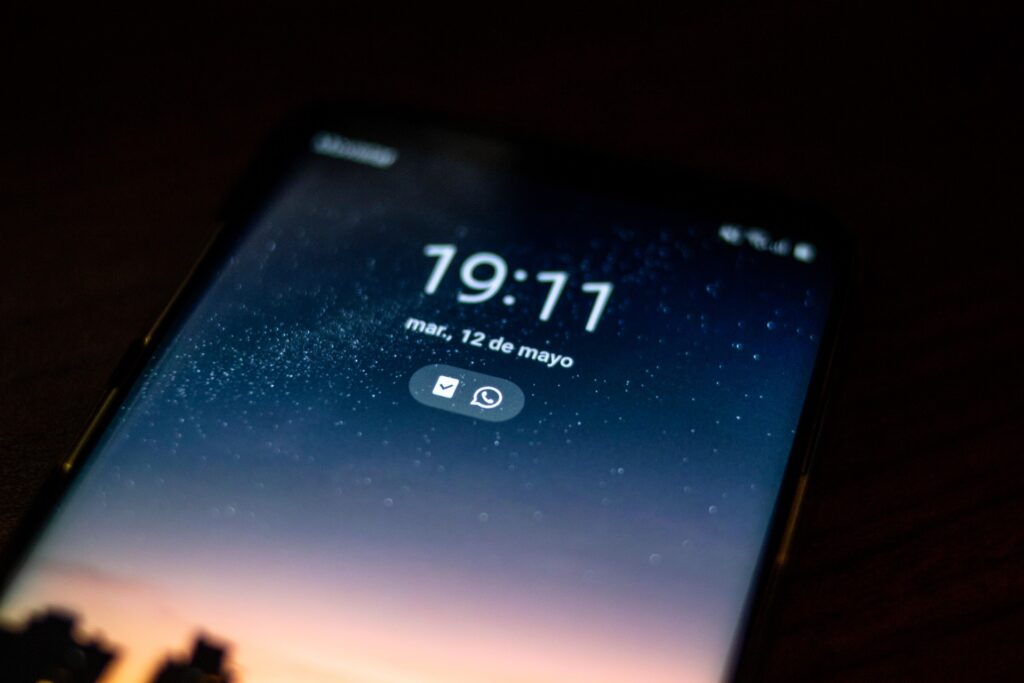We often talk about screen time limits for kids and how it helps enhance their minds and bodies. But is setting a screen time limit beneficial for adults also? Yes, say experts.
Today, most of our work and entertainment resources are tied to screens. Because of this, we’ve to spend a lot of time staring at them even if we don’t want to, which is causing some major problems.
This is why, in this post, we’ll have an in-depth look at these problems and check out solutions that help you protect yourself from screen-induced health issues without cutting out screens from your life.
Screen Time in Adults: Statistics
In 2019, RescueTime, a time management app company analyzed the data of 11,000 of their customers and revealed that “most people, on average, spend 3 hours and 15 minutes on our phones.”
This is the average number, which means a ton of people are using their phones for much more time than that. Also, this just shows the data for how much people are using their phones.
A report from DataReportal shows that average Americans spend an average of 7 hours and 11 minutes each day staring at screens. And that’s not really good for your health, say experts.
Downsides of Spending Too Much Time on Screen
Even though we’re habituated to screens, our bodies aren’t.
Our bodies are designed for physical tasks. Evolution shaped us this way because it was important for our survival.
Even though our modern lifestyle doesn’t require much of our strength and agility, our bodies haven’t had much time to adjust to this new change. So, when we disregard this and spend the majority of our time staring at screens we become prone to developing several physical and mental health problems. Have a look.
Eye Strain
Digital eye strain is one of the common problems that people who work on screens suffer.
Viewing a digital screen makes your eyes work significantly harder than it’s designed to. And as a result, your eyes become susceptible to developing vision-related symptoms.
Looking at the fact that viewing digital screens is not a one-time activity or something you do intermittently, it can put you at risk of developing digital eyestrain symptoms, also known as computer vision syndrome (CVS).
Remember that staring at a digital screen is different from reading something on a printed page. That’s because the letters on computers and mobile devices are often not as precise or sharply defined.
To compensate for that, your gadget reduces the contrast of the letters to match with the background. And combine that with reflections and glare on the screen, it makes viewing extremely difficult for your eyes.
Because of this, you start to experience symptoms like:
- Eyestrain.
- Headaches.
- Blurred vision.
- And dry eyes.
With time, untreated CVS can result in problems like farsightedness, astigmatism, and presbyopia.
Neck, Shoulder & Back Pain
The position in which you use your gadgets matters a lot. For example, many people walk texting on their phones with their heads down, and shoulders slumped. Similarly, we often look down on our laptops while working on them. And over time, these habits can induce severe damage to your proper biomechanical build.
The muscles in your neck and upper back, especially the trapezius, erector spinae, and sternocleidomastoid, maintain a certain length-tension relationship when you go through your day. The hunched positions we use our gadgets in constantly strain these muscles, causing them to stretch over time.
After a while, these muscles knot or adhesion in response to the constant stress you put on them, causing painful injuries.
Repetitive-Use Injuries
Repetitive motion injuries, also known as repetitive stress injuries, happen when you make your muscles, nerves, ligaments, and tendons do the same thing repeatedly, without giving it adequate time to recover.
These injuries may not seem significant at first, but with time, you’ll start feeling numbness, tingling, pain, and weakness in your muscles, nerves, ligaments, and tendons. They can either be temporary or permanent. But, in any case, they’re incredibly annoying and can significantly reduce your quality of life.
Experts say that activities like swiping and clicking on your phone or typing on your keyboard can cause you to develop severe repetitive-use injuries over time.
Insomnia
Insomnia, along with many other sleep-related disorders, is prevalent in people who interact with screens for a long time. That’s because digital screens expose our eyes to something called blue light.
Blue light is one of the few visible lights in the electromagnetic spectrum, and we’re exposed to it daily from the sun.
Now, I need to clarify that blue light from the sun is not a bad thing. In fact, it’s what keeps your body active throughout the day, as your body’s circadian rhythm is tied to the day/night cycle.
When you see blue light, your brain instructs your body to be active. And as the sun goes down, the brain again tells your body to start producing melatonin and make you feel tired and sleepy.
Melatonin is a hormone that regulates your sleep.
Now, the problem is our digital screens emit the same kind of blue light the sun does. And since we don’t stop using our gadgets after sundown, they expose our eyes to blue light when they’re not supposed to be exposed.
This confuses your circadian rhythm, causing you to struggle to fall asleep. Or, even if you manage to sleep at night, the quality of sleep you get will not be optimal.
Sedentary Lifestyle
The World Health Organization (WHO) recommends 150 minutes of moderate to intense exercise per week for adults. That’s 30 minutes a day of workout for five days a week.
That’s the bare minimum. Going below that can result in serious health problems in your body, says WHO.
But is that enough for your body? Well, yes and no.
Working out 30 minutes a day certainly protects you from developing problems like cardiac diseases and obesity, but it’s nowhere near enough to keep your body fit. You need to develop an active lifestyle.
And screens prevent you from having that. How?
Today, a massive chunk of the population has a desk job, which means they can’t move around as much as they’d like. But, once they’re off work, most people choose to spend their remaining time engaging with screens, scrolling social media, playing games, and binging media content.
Though it’s ultimately your choice, the majority of the time, screens encourage you to have a sedentary lifestyle, which results in a ton of problems in the long term.
Mental Health Problems
So far, we’ve talked about the physical effects of spending too much time on screens. But it doesn’t stop there. Experts say that the habit of spending too much time on screen also harms our mental health.
Screens & Mental Health
Because humans are social animals, we have the instinctive need to connect with other people. And social media gives us the platform to do that.
But the fact is, social connections are a mere fraction of why we get addicted to social media and spend a considerable amount of time mindlessly scrolling our feeds.
Social media companies design their product to keep you engaged for as long as possible. Now, while it’s great for companies, profit-wise, spending more time on social media has detrimental effects on your psyche.
Ironically for a technology designed to connect the world together, spending too much time on social media can actually make you feel more isolated and lonelier, say experts.
The reason behind this is how evolution shaped us to be. See, socializing for our brain is, meeting new people, being in a physical space with others, and exchanging emotions.
Though social media claim to give us that, for our evolution-based unconscious brain, we’re simply staring at an object emitting light, completely alone.
This can exacerbate several mental health problems like anxiety and depression.
And that’s just one part of how social media affects your well-being. Problems like FOMO (fear of missing out), unhealthy self-comparison, and self-absorption are also highly prevalent in heavy social media users.
You can learn more about this in my post “Tech Addiction: How Manipulative Technology Is Harming Our Health.”
How to Reduce Your Screen Time?
Like it or not, screens are a part of modern life. You can’t simply cut them off from it and expect everything to go well.
The good news is, you don’t have to cut out screens! Instead, you should focus on reducing your screen time in manageable ways that not only don’t negatively impact your quality of life– but actually improve it!
So, how do you protect yourself from screen-induced health problems?
Turn Off Notifications
Notifications are one of the main reasons people spend a long time on screens.
Experts say that “The alerts from phones or even the anticipation of them, shuts off the prefrontal cortex that regulates higher-level cognitive functions, and instead, forces the brain to send emergency signals to the body.” This means that every time you get a notification, your body gets a rush, but not necessarily a good one.”
In 2015, a group of researchers conducted a study in which they issued a “Do Not Disturb” challenge to a pool of 30 volunteers. In this challenge, the participants had to disable all notifications on their phones for 24 hours across all devices.
Once the 24 notification-less hours ended, the researchers asked the volunteers how they felt. They found that, while some participants felt anxious about missing their messages during the study, there were significant improvements in their concentration and reduction in their stress levels.
Because notifications make you anxious, they drive you to your phone ever so often that it interferes with your ability to do other tasks.
So, what can you do? Simple. Turn off notifications.
You can do that by going to your phone’s settings. Or, if you don’t want to turn off notifications one by one on individual applications, there are many apps on the internet that can help you with this.
1 Notification = 15 Minutes of Unproductive Time, Says Science
Studies say that interruptions are one of the most potent productivity killers. This is why experts believe that remote work is more productive than in-office work.
When you’re working remotely, you’re less likely to be interrupted. For example, your co-workers can’t suddenly drop by your work area, or you’re less likely to be dragged into impromptu meetings.
But even when working remotely, most people subject themselves to one type of interruption that can kill productivity and even take a huge toll on your wellbeing.
And that interruption is the notifications you get from your devices.
Our brains are hardwired to react to notifications. This is because, in ancient times, an alert would mean an incoming threat that could injure or even kill you. So, in response, you’d prepare to defend yourself.
This unconscious behavior is encoded in our DNA.
Today, many apps and sites fight for your attention. All of them want your time. So, whenever (ding) you try to focus, (ding) it forces you (ding) to grab your phone and spend your valuable time generating revenue for them.
And as per research, every time you react to a notification, you lose around 15 minutes of your productive time before returning to what you were doing.
Leave Your Phone Out of the Bedroom
From blue light exposure and digital overstimulation to lesser sleep and a decline in mental health, taking your phone to your bed is not a good idea.
See, the bedroom is supposed to be the sanctuary for a good night’s rest. But as modern technology proliferates, our bed has also become a place for us to complete what we can’t during the day.
Experts say that you should get rid of your phone at least two hours before bed. Doing this lets your brain adjust to the nighttime environment, giving you proper REM sleep.
Besides that, there are other things you can do to enhance your sleep quality. Read my post “Sleep Sanctuary” for more information.
No Phone Policy on the Dinner Table
Bringing your phone to the dinner table is not just rude, but it also can seriously affect your mental health, say experts.
See, when you use your phone during your meal, it engages a huge chunk of your brain, leading to problems like caloric over ingestion, indigestion, and less satisfaction. And when you practice mindful eating, not only can you enjoy the satisfaction of each meal, you receive a ton of other benefits.
I’ve written all about it in my post on “Using Your Cell Phone on the Dinner Table.” So, do check it out.
Practice Digital Detox
You may have heard of digital detox. It’s a practice where you refrain from using your gadgets for a certain period. You can choose it to be for a day in a week, a few hours at the end of your day, or a weeklong vacation without tech your choice. But, regardless of the route you take with digital detox, you’ll receive several benefits.
I get that we’re in a fast-paced world, where not using technology will cause you to fall back behind. But you need to also understand that this fast-paced world which requires you to be on your tech at almost all times, is just one part of your life. And digital detox allows you to connect with the other half. So, give it a try.
You can read my in-depth post on “Digital Detox” to learn more about how it works and how you can implement it in your life.
Final Thoughts
Today, we’re so engaged with technology that it makes us feel like we don’t have any time at all. But, if you just stop and give it a thought, you’ll realize that you actually do have time. And you just need to prioritize what’s important.
Limiting screen time will not only protect you from developing screen-induced health problems, but it will also free up a lot of time for you to invest in yourself.
So, start limiting your screen time today for a safer, healthier future.












